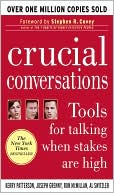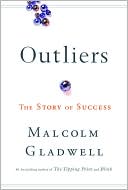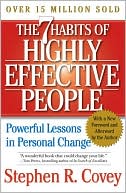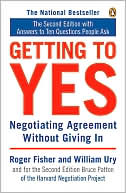Formula 2 + 2: The Simple Solution for Successful Coaching
Even the best managers often view employee coaching and feedback as necessary evils, tasks to be done with little enthusiasm and as rarely as possible. Formula 2 + 2 provides managers with a simple yet powerful approach to revolutionizing feedback conversations and making them a regular and even welcome part of their duties. Based on the assertion that feedback is most effective when motivated by a spirit of helpfulness and a sincere desire to help employees succeed, the book explains five...
Search in google:
Even the best managers often view employee coaching and feedback as necessary evils. In this work, Allen provides managers with a simple yet powerful approach to revolutionizing feedback conversations and making them a regular and even welcome part of their duties.
Formula 2+2\ The Simple Solution for Successful Coaching \ \ By Douglas B. Allen Dwight W. Allen \ Berrett-Koehler Publishers, Inc.\ Copyright © 2004 Douglas B. Allen and Dwight W. Allen\ All right reserved.\ ISBN: 978-1-57675-310-1 \ \ \ Chapter One\ The Unguided Missile \ Percy Pershing was out of control again. His supervisor, Pauline Smith, was frustrated—and the company was hurting.\ Pauline prided herself in running a tight ship. She supervised twenty salespeople, encouraging them to sell and service energetically the firm's high-quality products. Customer feedback on the product line continued to be extremely positive. However, sales had been relatively flat for the past two years and the company just couldn't seem to capitalize on its product excellence in the marketplace.\ Percy's recent trends were a case in point. As she looked at the latest sales report, Pauline saw two lines on a graph. One line, which represented the sales goals she and Percy had agreed upon six months previously, headed toward the northeast corner of the chart. The other line—actual sales for the reporting period—dipped and dived erratically on its downward path toward the southeast corner of the graph. Percy is as unpredictable as an unguided missile, Pauline thought.\ This report was only the latest of several that had delivered equally bad news regarding Percy's performance over the past several months. Pauline liked Percy and did not look forward to the prospect of confronting him. Until six months ago, Percy had been one of her best salespeople, and she did not want to discourage him. She had hoped that by giving him some time and encouragement, he might self-correct and the problem would go away. She knew that Percy meant well, and she had originally decided to wait until the formal performance appraisal at the end of the year to raise her concerns with him.\ But this latest report was the straw that broke the camel's back. Percy's sales hadn't improved. In fact, they had declined further. She decided that as much as she hated the prospect, she would need to have a serious talk with him. She called him and scheduled a meeting for the next day.\ In this brief meeting, she tried to remain friendly and supportive as she delivered the bad news. "If sales do not improve, you won't receive your year-end bonus."\ She had given him ample time to change his course. She had cut him as much slack as any reasonable manager could. He was now facing his last chance.\ * * *\ Of course, Percy had a different view of the situation. In the intervening months since his last performance appraisal, Percy had assumed that no news was good news. He knew that he wasn't even close to achieving his goals—for the second quarter in a row—but he was also aware that other people were experiencing similar problems. It's not that he wasn't trying. He had put in more than his fair share of hours and had done his best to provide good service to his customers. Surely Pauline could see that. He had expected at least some positive comments from her.\ Instead, Percy left Pauline's office feeling shocked and betrayed. She had been cordial enough, but instead of acknowledging his hard work, she had focused on the poor sales. Didn't she realize he was doing his best? Didn't she realize how much extra time he had been putting in? Even when he hadn't met his sales quotas, he had spent a lot of extra time with customers after the sale to help them install the product and learn how to use it.\ Pauline is as unpredictable as an unguided missile, Percy thought. As he looked toward the future, he concluded that it would be increasingly difficult to work in an environment where the capricious and unpredictable behavior of his manager placed his compensation—and perhaps even his job security—at risk.\ * * *\ In contrast to Percy's feelings of betrayal, Pauline was simply confused. Percy had actually seemed surprised when she told him in a very calm, friendly way that his work was not satisfactory. After all, they had mutually agreed on clear goals that had not been met. In reality, he had not even come close. How could he have been surprised?\ As unpleasant as the meeting had become, she still hoped Percy could turn himself around. It would take considerable time and money to find another employee to replace him. By the time the new person was up to speed, another year of vital new account sales development would be lost.\ Pauline was confident that she was a good manager. She had high expectations for her team. She set challenging goals for herself and for her people. She encouraged them to come to her with problems and offered them her support in numerous ways.\ She believed in empowerment, too. She let her salespeople take initiative and encouraged them to work directly with anyone within the organization to solve problems and respond more effectively to customers. She was the kind of manager she wished she'd had when she was a sales rep years ago.\ As she reflected on her encounter with Percy, she determined that she would have to reinforce the company's goals as clearly as possible during his performance appraisal at the end of the year.\ * * *\ Pauline just doesn't know how to manage, Percy thought. I do my best, but my best is not good enough for a manager who doesn't know what she wants from her people.\ Had this been an isolated incident, Percy might have simply dismissed it as the result of Pauline's grumpiness on a bad day. Most managers have those every once in a while—as do most people. But he had heard from too many of his colleagues about similar incidents. As a result, the company had lost many valuable and talented people.\ Just two months earlier, Mandy had complained bitterly to Percy about a run-in she had had with Pauline. Her sales figures had shown improvement over the preceding months, yet Pauline had called her and had spoken sharply about an isolated complaint she had received from one of Mandy's customers. While Pauline had made a valid point about the problem with that customer, she hadn't made any mention of the hundreds of satisfied customers Mandy had worked with over the past several years. In fact, Mandy had become so de-motivated by Pauline's phone call that she abandoned a new system she had developed called "personal selling excellence," or PSE. Her sales—and her enthusiasm—continued to decline until one day she was gone. Percy had no idea where she went.\ Meanwhile, Sena, another of Percy's counterparts, always seemed to be spinning his wheels. He was capable and motivated but had never been in a sales position before. He worked hard and was enthusiastic but didn't know the first thing about selling the company's products. Percy could see that Sena's job would be in jeopardy if someone didn't offer him some friendly advice on basic selling techniques. Percy had considered talking to Sena himself. Here was a real tragedy in the making—a potentially great salesperson was failing because he didn't know he was going about his job in an entirely ineffective manner. Percy decided it really wasn't his business and he didn't want to intrude. A few days later, Sena was gone.\ Finally there was Greg, the top salesperson in the organization. Percy didn't know where Greg ended up when he left the company, but he did know that Greg's departure, too, had been entirely unnecessary. When the company had downsized its sales force about two years earlier, the sales force was shocked to see two of the hardest-working salespeople get pink slips. While it was widely known that two other salespeople, Carrie and Yvette, had missed their sales quotas and were generally lazy when it came to helping their colleagues and customers, they had remained in the company unscathed while two spirited performers had been asked to leave. Greg had watched this process carefully and wondered if he could be next. This led to so much insecurity on his part that he decided to move on.\ Pauline was taken entirely by surprise on that one and expressed her regret that the top salesperson in her organization was leaving. She even offered him a bonus to encourage him to reconsider, but he left nonetheless.\ Percy recalled that when the layoffs hit, Greg had confided in him. He had said that he had no confidence in the integrity of the company's feedback and reward system. He knew he was excellent at what he did and would have no trouble finding another great job. As much as he liked the company, he felt that in the event of another downsizing, his job would be as much at risk as anyone's. He wasn't sure how much he was valued, and he didn't see any connection between who performed and who was ultimately laid off.\ As Percy reflected on some of these recent incidents, he again wondered whether he should look for another job himself.\ * * *\ As puzzling as Percy's response had been to their conversation earlier in the day, Pauline had to admit that it wasn't the first time she had been caught by surprise by one of her people's reaction to the feedback she had provided. She believed she was skilled at guiding them. She worked with them each year to set challenging yet attainable goals. She tried to avoid giving negative feedback, but if matters got too bad, she would meet with individuals privately so they wouldn't be embarrassed. She also held regular meetings with her staff to benchmark and discuss organization progress. And as much as she hated the process, she spent an inordinate amount of time preparing for and conducting the company's formal performance appraisals at the end of each year. What else could she reasonably do to communicate her position to people when matters were not going well?\ Admittedly, Pauline loathed the whole idea of performance appraisals—nasty pieces of paper that had to be filled out in great detail. Even so, she had considered changing from annual reviews to semiannual reviews. She thought perhaps this would help keep her team on track. After all, the annual approach didn't seem to accomplish anything meaningful.\ On her commute home, Pauline decided that there had to be a better way to give her employees feedback. And she was determined to find it.\ KEY TAKEAWAYS\ Inadequate and inconsistent feedback leads to frustrated people and managers alike. Without a proper context, even well-intentioned feedback can result in shock and defensiveness. The formal performance appraisal system is usually not an effective vehicle for providing regular feedback to people.\ Chapter Two\ Performance Appraisal: Like a Trip to the Dentist \ Pauline had trouble falling asleep that night. She kept tossing and turning as her thoughts about performance appraisals churned around in her head.\ Might as well get up and make some notes, she thought as she threw the bed covers aside.\ She turned on the light in her home office and booted up her laptop. The first words she entered were "Annual PAs: About as much fun as a trip to the dentist."\ This could help both me and the company, she thought as she began to collect and enter her ideas. It was clear to her that there were several reasons for her disdain of annual performance appraisals.\ First, they were time consuming. Pauline resented all the time she spent filling out forms. Each form asked for a lot of repetitive information that she had to copy laboriously from the previous year's form, followed by forty performance items she had to evaluate.\ The meetings themselves were time consuming, too. She had to sit down with each employee for a half hour, an hour, or more and talk with him or her. The meetings seemed to go on forever and often ended on a sour note, even though that was never her intention. It somehow just "happened."\ Second, she was concerned about the use of arbitrary numbers. Each section involved rating her people on a one to five scale. It was very difficult to justify giving one person a four and another a five. What was the behavioral difference between a four and a five? How could she be impartial and objective using numbers? While she could distinguish between the best and worst of her people, most were in the mushy middle. So she tended to give all of her folks high numbers because she didn't want to prevent any of them from getting their full—if rather meager—bonuses at the end of the year.\ Another problem was that performance appraisals usually involved coordination with the human resources department. These people, after all, were the custodians of the performance appraisal process. They were cordial and helpful enough, but HR didn't understand the day-to-day realities of line managers. They wanted the forms back by a certain date regardless of the work pressures Pauline confronted. It was as if those blasted pieces of paper were more important than the customers in the field. Pauline was incensed that a department to which she did not report was ordering her to do something arbitrary at best—and totally at its convenience.\ It was clear to Pauline that her direct supervisor, Andy, viewed performance appraisals as a low priority. After all, he seldom completed his appraisals within the two-month time frame set by the HR department. In fact, Pauline had never received her own performance appraisal anywhere near the deadline. And when she met with Andy to discuss her appraisal, she learned very little because, clearly, he hadn't taken the time to prepare for the meeting.\ Due to his low opinion of the process, she received little support in terms of the reviews she conducted. In all of the years she had worked with Andy, he had not once raised the issue of how well she was appraising her people's performance. Certainly it was not something evaluated or even mentioned in his appraisal of her performance.\ Pauline wondered how Andy would respond if she said, "Sorry, I can't meet your production quota this week because I'm taking the time to do effective and timely performance appraisals with my staff."\ His response would be as predictable as the weather in Portland, she thought. "Have you lost your mind? You can fill out those appraisal papers anytime. We have customer orders to fill." It turned out that there were always customer orders to fill, so performance appraisals routinely slipped to the bottom of the priority list. When most managers finally got around to preparing appraisals, they didn't devote the time and attention needed to do them well because HR needed them yesterday.\ The forms were also devilishly annoying to fill out because they required subjective as well as objective analysis. As hard as the numbers were to assign, at least they were numbers. Pauline could then use those numbers to justify her discussion with an employee: "Right now you are a three; perhaps you can work harder this year and move to a four." But the form also had space to write a qualitative assessment of the employee.\ Pauline was especially uncomfortable with this aspect. She believed that a manager's job was to be objective. Any narrative she wrote about one of her people's performance ran the risk of subjectivity and bias. If she prided herself on anything, it was her fairness and unbiased approach toward all of her people. It occurred to her that perhaps the performance appraisal system could be improved by redesigning the forms to eliminate the request for subjective assessments.\ The fact that performance appraisals took place only once a year was a big problem. By the time Pauline completed the forms and shared them with her employees, much of the content was ancient history.\ But to Pauline, one of the most frustrating aspects of the current performance appraisal process was that it did not have a clearly established purpose in Pauline's company. How were those numbers and subjective statements actually used? Pauline knew that they impacted bonuses and that was why she tended to rate everyone positively. After all, she didn't have any really bad people. Even the poorest performer among them deserved more than the meager bonus offered by the company. While she couldn't change the amount of the bonuses, she could at least make sure that all of her people got as much money as possible.\ Even her best people had occasional bad months. Yet when that did happen, she generally did not reflect that fact in their performance appraisals. She was afraid that this might stigmatize the work records of her people and limit their consideration for future promotions. From a selfish standpoint, of course, Pauline liked to do what she could to retain her best people. But Pauline genuinely cared about the career development of her staff and wanted to help them get ahead in the company. By overlooking her people's occasional poor performances, Pauline believed she was serving their best interests in the long run.\ (Continues...)\ \ \ \ \ Excerpted from Formula 2+2 by Douglas B. Allen Dwight W. Allen Copyright © 2004 by Douglas B. Allen and Dwight W. Allen. Excerpted by permission of Berrett-Koehler Publishers, Inc.. All rights reserved. No part of this excerpt may be reproduced or reprinted without permission in writing from the publisher.\ Excerpts are provided by Dial-A-Book Inc. solely for the personal use of visitors to this web site. \ \
ForewordIntroduction1The unguided missile12Performance appraisal. : like a trip to the dentist83The trip to the dentist134Celebrate success and encourage improvement205The magic of balance246The importance of timeliness317The spirit of 2+237A special message from Buzz Aldrin, astronaut, Apollo 11438The power of focus449Getting 2+2 up and running4810The need for specificity52112+2 : take two5812The integrated follow-up6513Creating a sustainable 2+2 program7114Epilogue : two years later75Authors' final note78The secrets of 2+281Pauline's 2+2 preparation checklist83








